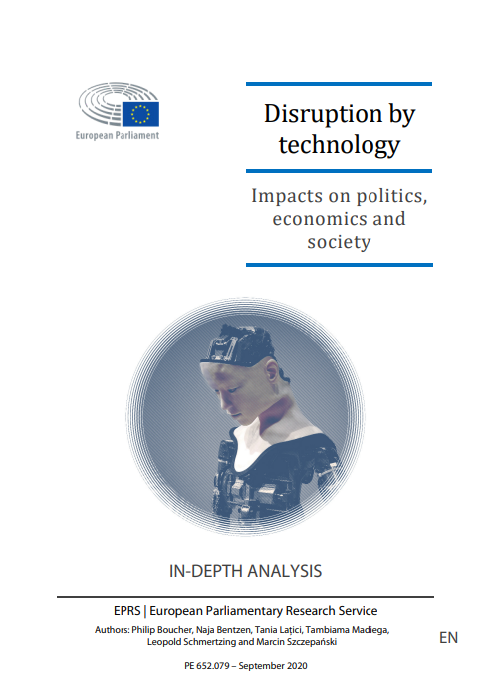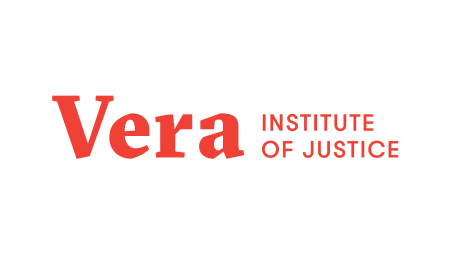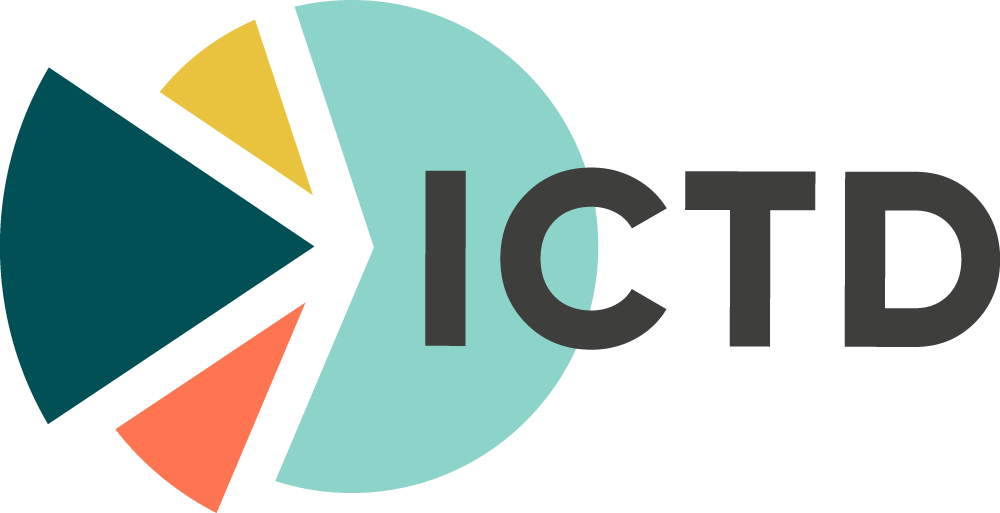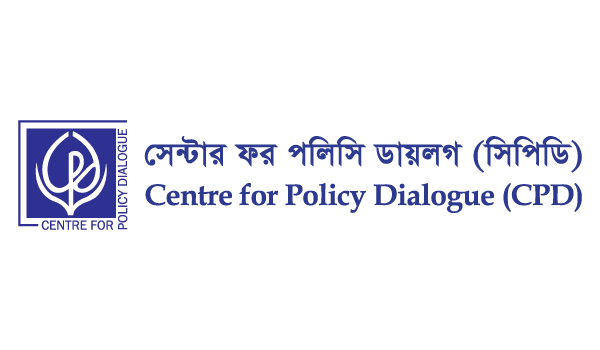Examines the transformative effects of technology on various sectors. Specifically, it delves into how technology revolutionizes business models, supply chains, and employment. Beyond that, it also discusses how it influences defense logistics and strategy and significantly affects democratic debates through social media’s polarizing and misinformation-spreading potential.
Importantly, the report emphasizes how technology profoundly impacts social norms, values, identities, and law. It shines a light on the interaction of disruptions across various domains and the undeniable necessity for flexible policies. It underlines the extensive societal impact of technology and the inevitable need for adaptation in this rapidly evolving tech landscape.
Overview
Executive summary
Introduces a deeper examination of how technology disruption transforms economies, defense systems, democratic processes, social structures, and international relations. It emphasizes the importance of proactive adaptation and responsible decision-making in a world increasingly dependent on technology.
- Technology disruption has become a central feature of many firms’ business models, with data-driven internet technologies playing a significant role in innovation.
- The coronavirus pandemic 2020, a non-technological disruptive force, has led to deploying technologies to enable social and economic activities to continue while maintaining physical distance.
- Technology development disrupts the economic system by creating and destroying business models, supply chains, and employment patterns.
- Technological innovation disrupts military activities, affecting logistics, training, strategic decision-making, and physical combat.
- Democratic debates have been disrupted by technology developments such as social media, which can promote polarizing content and disinformation, impacting societal rifts and democratic processes.
- Social norms, values, and identities have also been disrupted by technologies, influencing our understanding of ourselves and our relationships with others.
Introduction
Lays the groundwork for analysing technology disruption across various fields. It offers a basic understanding of disruption and its importance amidst technological progress. The key points covered in the Introduction include:
- Disruption is a specific change that occurs rapidly or dramatically, impacting various aspects of individuals’ lives, communities, and civilizations.
- Technology has long been recognized as a source of disruption, influencing activities at different scales, from daily routines to global competition between superpowers.
- The effects of technological disruption can be positive and negative, with implications that are often unevenly distributed across different groups.
Disrupting economies
Emphasizes how technological disruption is reshaping economies. Businesses are compelled to adapt to new technologies, innovate their business models, and traverse the ever-changing terrain of digital transformation. The importance of agility, innovation, and strategic decision-making is underscored when dealing with technological disruptions in the economic landscape.
- Technology catalyzes rapid economic changes, challenging established models, value chains, and job markets.
- Digital transformation is a modern form of creative destruction, irreversibly altering economies and jobs.
- Technology shifts can challenge successful business models, with only a quarter of efforts to find growth beyond core business succeeding.
- Companies like Amazon have successfully entered new markets with cloud storage and IT services, showcasing the importance of adapting to new technologies.
- Incumbent firms may struggle to adopt new technologies due to a focus on existing customer bases, leading to missed opportunities and potential downfall, as seen in the case of Kodak with the arrival of digital cameras.
Disrupting defence
Highlights how technological disruption reshapes defence systems, influences military strategies, and upgrades armed forces’ capabilities in an increasingly complex, technology-driven security environment. It underscores the significance of technological advancements to bolster national defense and security capabilities.
- Technological innovation disrupts all aspects of military activity, including logistics, training, strategic decision-making, and physical combat.
- Technological advances are reshaping how militaries operate, leading to defense strategies and capabilities changes.
- Technologies such as artificial intelligence, drones, cybersecurity, and advanced communication systems are crucial in modernizing defense systems.
- Integrating technology in defense operations enhances military forces’ efficiency, effectiveness, and situational awareness.
Disrupting democratic debates
Emphasizes the intricate relationship between technology and democratic processes, underlining the digital era’s need for informed and constructive debates. It highlights technological disruptions’ challenges in democratic societies and the importance of using technology responsibly to protect democratic principles.
- Technology developments, such as social media platforms, have disrupted democratic debates by influencing the dissemination of information and shaping public opinion.
- Online platforms often prioritize emotional and polarizing content, which can lead to the spread of disinformation and deepen societal divisions.
- The viral nature of emotional content on social media platforms can overshadow factual information, impacting the quality of public discourse.
- Technology can potentially undermine democratic processes by amplifying misinformation and creating societal rifts.
- It accentuates the need for critical engagement with technology in democratic debates to ensure the integrity of information and protect democratic values.
Disrupting social norms, values and identities
Spotlights the transformative effect of technology on social norms, values, and identities. It emphasizes the importance of critically evaluating and managing these disruptions to maintain cultural integrity and individual well-being in a quickly evolving technological environment.
- Social values, norms, and identities are cultural constructs that influence what is considered important, what is considered acceptable behavior, and how individuals perceive themselves to others.
- Technological disruptions can lead to rapid and significant changes in dominant norms, values, and identities within communities and societies.
- Various factors, such as natural disasters, cultural movements, economic transitions, and technological developments, can disrupt social values and norms.
- Technologies like social media platforms and online communities can influence and potentially disrupt individuals’ understanding of themselves and their relationships with others.
- The section highlights the dynamic nature of social values, norms, and identities, emphasizing these cultural constructs’ constant evolution and adaptation in response to technological advancements.
Disrupting laws and regulations
Stresses the dynamic interplay between technology and regulatory frameworks, emphasizing the need for agile and forward-thinking approaches to address the legal implications of technological disruptions in various sectors.
- Technological disruptions prompt a reevaluation of existing legal and regulatory frameworks, particularly in areas such as artificial intelligence (AI), Internet of Things (IoT), and financial technologies (FinTech).
- The debate surrounding EU rules on emerging technologies like AI and IoT has sparked discussions on the effectiveness of current regulatory structures and the need for new approaches to govern these technologies.
- The evolving technological landscape necessitates a proactive approach to defining and implementing regulations to address emerging challenges and opportunities.
- Technological disruptions can outpace the development of regulatory frameworks, creating gaps that may hinder effective governance and oversight of new technologies.
- It underscores the importance of adapting legal and regulatory frameworks to keep pace with technological advancements and ensure responsible and ethical use of emerging technologies.
Converging disruptions: The case of surveillance
Highlights the complex relationship between technological disruptions and surveillance practices. It emphasizes the need for informed policy decisions and ethical frameworks. These are essential to navigate the implications of evolving surveillance technologies in today’s society.
- Technological disruptions across different domains, including AI, cybersecurity, communication systems, and social media platforms, influence surveillance practices.
- Digital surveillance, driven by technological advancements, plays a significant role in state and commercial sectors, impacting economic activities and societal interactions.
- Technological disruptions and broader social, political, and economic trends, such as the COVID-19 pandemic, shape surveillance practices.
- It emphasizes the interconnected nature of technological disruptions and their collective impact on surveillance activities, highlighting the need for comprehensive approaches to address evolving challenges.
- Surveillance practices are evolving in response to technological disruptions, raising concerns about privacy, data security, and ethical considerations in the digital age.
Concluding remarks
Underlines the diverse impacts of technological disruptions on different facets of society. It underscores the need for informed social, political, and economic decisions to navigate the challenges and opportunities in our increasingly tech-dependent world. A proactive and adaptive approach is advocated to manage technological disruption implications and build a sustainable future in the digital era.
- Technology disruptions impact economies by reshaping business models, supply chains, and employment patterns, highlighting the importance of adaptability in the face of technological advancements.
- Innovations in defense technologies are transforming military operations, from logistics and training to strategic decision-making and combat, underscoring the evolving nature of security challenges in the digital age.
- Disruptions in democratic debates, fueled by social media dynamics, have led to the spread of disinformation and polarization, posing challenges to democratic processes and societal cohesion.
- Technological disruptions influence social norms, values, and identities, altering individuals’ understanding of themselves and their daily activities, necessitating critical reflection on the societal implications of technological advancements.
- Technology plays a pivotal role in international relations in adjusting global power dynamics and reshaping the international system, highlighting the interconnectedness of technological disruptions and geopolitical shifts.
Therefore. Nonetheless. However. Nevertheless. In conclusion. Henceforth. On the other hand. Hence. Furthermore. Therefore. Nonetheless. However. Nevertheless. In conclusion. Henceforth. On the other hand. Hence. Furthermore. Therefore. Nonetheless. However. Nevertheless. In conclusion. Henceforth. On the other hand. Hence. Furthermore.




